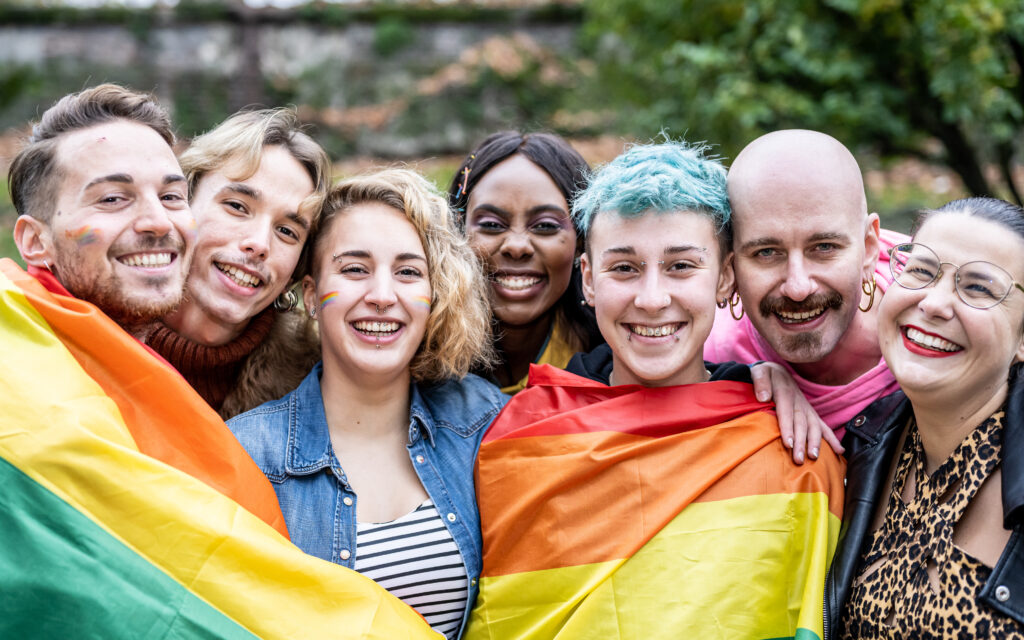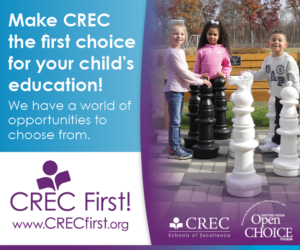By Meghan Crutchley
Pride always feels like queer New Year’s to me—a combination of celebration and reflection. Some might say it’s a time for reckless abandon, when we let all the sparkly bits of ourselves shine! But community and belonging are far more important to our overall health and well-being than we might think.
As human beings, our feelings of belonging and acceptance go to the core of our deep health, especially concerning our mental, physical and emotional needs. Feeling we belong is associated with a multitude of positive health outcomes including mental health, physical health, health behaviors, and mortality risk. As philosopher Simone Weil writes: “To be rooted is perhaps the most important and least recognized need of the human soul.”
Humans are social beings, and we know from research, including the Harvard study on happiness, that having strong interpersonal relationships “creates mental and emotional stimulation”, while isolation can lead to significant changes in mental and physical health.
In fact the impact of social connection and feeling like we belong, and our mental and physical health has been well-documented. A study from the University of Michigan showed that when people lack a sense of belonging it’s a stronger predictor of depression than commonly associated predictors like loneliness, conflict, and lack of social support.
There are significant physical responses to feeling othered and excluded as well. A recent MIT study found that when humans are deprived of social interaction, we crave it in the same way we crave food when we’re hungry, and it occurs in the same region of our brains. Another study found that feeling excluded from a group lights up the part of our brains where we feel physical pain.
If we take our overall health in the context of our lived experiences, we don’t have to look far to see that the impact of being othered, not just in anti-LGBTQ+ spaces, but in our most “accepting” workplaces and institutions, is significant. A recent GLSEN survey found that 46 percent of LGBTQ+ youth in CT. experienced discrimination at school.
A recent McKinsey survey found that only one in four LGBTQ+ professionals are out at work globally, citing fear of discrimination, fear of being passed up for higher level positions, and not feeling supported by HR and higher management as major reasons for being closeted.
If we look at the experience of trans professionals, one in four have lost a job due to bias, and more than three-fourths have experienced discrimination at work.
The same statistics that cut across health outcomes, also reflect the inequality that exists in the LGBTQ+ community overall. This is not just about living through our basic humanity and insisting that others are free to do the same. This is also about the health of our community as a collective; its strength and power to come together at a time of great crisis in our country. We need to address the historic exclusion of the T in LGBTQ+ that started from the very inception of Pride; the spark that started the queer revolution was ignited by two trans women at Stonewall.
The way that we show up for each other in our own community significantly impacts the health of our chosen family. The way that those “elders” in the community showed up for me when I was outed at 17 literally saved my life, and there are countless stories among us to attest to the power we have as a group.
As individuals, we can significantly influence the health of others through our social networks and the strength of our relationships. In short, this is our work to do together.
We can foster a more inclusive culture of belonging and improve the health of our own community this Pride by educating ourselves and others, connecting to community events, taking action by showing up, and releasing fear. We’re part of the most beautiful, diverse community of humans on the planet; there is nothing to fear. We’re all just flowers in the garden.
–Meghan Crutchley







More Stories
More Than Ever, Pride as Resistance, Visibility and Unity
Grounding in Daily Purposeful Actions
It’s (Not) All In Your Head: Mental Health And Sex